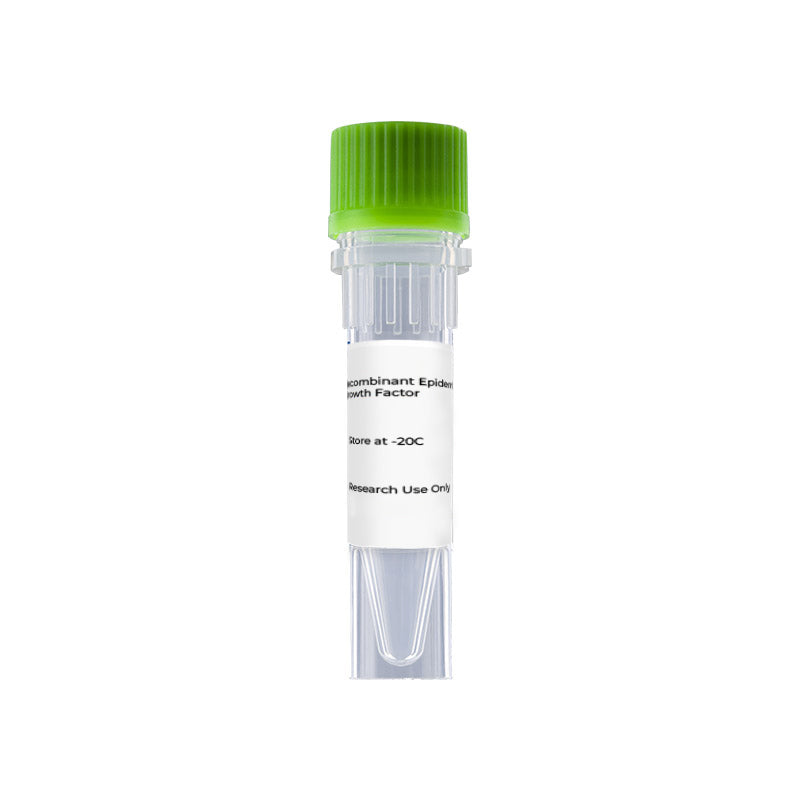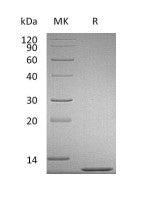1
/
of
2
Recombinant Mouse CCL2
Recombinant Mouse CCL2
Recombinant Mouse C-C Motif Chemokine 2 is produced by our E.coli expression system and the target gene encoding Gln24-Arg96 is expressed.
Catalog No:
EPT150
Regular price
$363.00 USD
Regular price
$279.00 USD
Sale price
$363.00 USD
Unit price
/
per
Couldn't load pickup availability
Product Details
Accession
P10148
Molecular Weight
8.5 KDa
Apparent Molecular Weight
12 KDa, reducing conditions
Purity
Greater than 95% as determined by reducing SDS-PAGE.
Endotoxin
Less than 0.001 ng/µg (0.01 EU/µg) as determined by LAL test.
Expression Host
E. coli
Reconstitution
Always centrifuge tubes before opening.Do not mix by vortex or pipetting.
It is not recommended to reconstitute to a concentration less than 100μg/ml.
Dissolve the lyophilized protein in distilled water.
Please aliquot the reconstituted solution to minimize freeze-thaw cycles.
Shipping Condition
The product is shipped at ambient temperature. Upon receipt, store it immediately at the temperature listed in the Storage field.
Storage Condition and Shelf Life
Lyophilized protein should be stored at < -20C, though stable at room temperature for 3 weeks.
Reconstituted protein solution can be stored at 4-7°C for 2-7 days.
Aliquots of reconstituted samples are stable at < -20C for 3 months.
Background
C-C motif chemokine 2 (CCL2) is a member of the C-C or β chemokine family. Mouse CCL2 shares 82% amino acid (aa) identity with rat CCL2 over the entire sequence, and 58%, 56%, 55%, 53% and 53% aa identity with human, equine, porcine, bovine and canine CCL2, respectively. Fibroblasts, glioma cells, smooth muscle cells, endothelial cells, lymphocytes and mononuclear phagocytes can produce CCL2 either constitutively or upon mitogenic stimulation, but monocytes and macrophages appear to be the major source. In addition to its chemotactic activity, CCL2 induces enzyme and cytokine release by monocytes, NK cells and lymphocytes, and histamine release by basophils that express its receptor, CCR2. Additionally, it promotes Th2 polarization in CD4+ T cells. CCL2-mediated recruitment of monocytes to sites of inflammation is proposed to play a role in the pathology of atherosclerosis, multiple sclerosis and allergic asthma.
Analyte
CCL2
Regulatory Status
For Research Use Only



